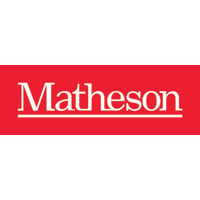
| Statkraft Ireland


Statkraft Ireland
Key team members: Conor O’Sullivan, Nicole Ridge, Laura Byrne
What are the most significant cases and transactions that your legal team has recently been involved in?
Over the past year, Statkraft Ireland’s legal team has been fully involved in providing support on the development of its pipeline of onshore wind, offshore wind, solar, markets, battery storage and grid services projects. The team also assisted in the forward sales of a portfolio of solar projects to Octopus Renewables, as well as the sale of the South Meath solar project to Greencoat Renewables.
We have worked with the Statkraft markets team to expand its portfolio of Power Purchase Agreements and were involved in the company’s entry into a notable multi-project Corporate PPA transaction with a large multinational technology provider.
What has been the number one challenge that has impacted you over the past year?
The biggest obstacle to the construction of renewable energy projects in 2022 was in the form of supply chain issues. Global logistics disruptions – which initially arose during the pandemic – continued in 2022 and the flow of materials and goods for projects was restricted by the shutdown of major ports. Furthermore, the onset of the war in Ukraine had a pronounced impact on European steel production.
Substantial increases in commercial gas and electricity prices in 2022 also impacted domestic supplies such as quarrying materials and concrete products required for construction projects.
Supply chain issues resulted in higher prices for materials, as increased energy and freight costs were incorporated into supply chains. These disruptions also culminated in longer wait times for goods – particularly imported products, as developers competed for a limited supply of key commodities and logistical capacity.
Government and renewable industry leaders are looking to develop strategies to build resilience and boost Ireland’s domestic capabilities. This is to decrease reliance on regional and global supply chains.
Has the increasing consciousness of climate change and sustainability affected your company and the team’s priorities, and if so, how?
Climate change and sustainability has always been important to Statkraft. As Europe’s largest generator of renewable energy, we want to continue working towards mitigating the worst impacts of climate change and commit to the UN’s Sustainable Development Goals. As part of an updated growth strategy announced in 2022, Statkraft will accelerate growth in solar, onshore wind, and battery storage projects towards an annual development rate of 4 GW by 2030.
Statkraft’s renewable energy projects reduces Ireland’s reliance on imported fossil fuels. Every additional MW of clean energy generated means a reduction in the amount of coal and gas needed by Ireland to generate electricity. This supports the drive towards a more decarbonised economy, and ultimately, leads to a reduction in electricity costs for consumers.
Every new project also supports the delivery of urgently needed clean renewable energy to the Irish grid, utilising the latest technologies to maximise the potential of local energy resources.
An increasingly important element of project development is community engagement. This enables communities to make contributions on project design and layout and increases cooperation and trust between Statkraft and residents of the areas in which the projects are developed. Many renewable projects also deliver annual community benefit funds during the project’s lifetime, supporting sustainable initiatives in local areas. Examples include amenity trails and biodiversity enhancement initiatives in conjunction with local schools.
Statkraft Ireland looks forward to developing this positive local engagement to progress its pipeline of projects and help Ireland decarbonise its energy system.